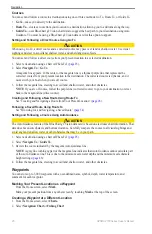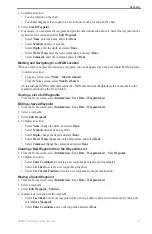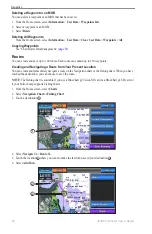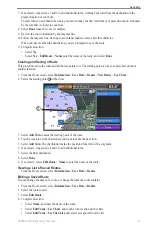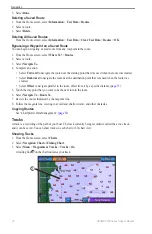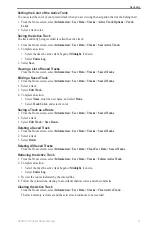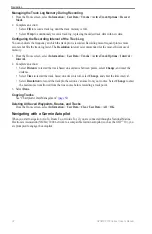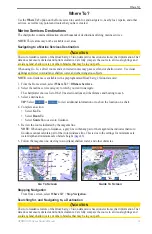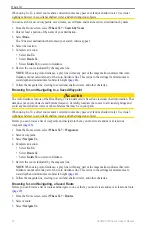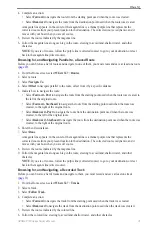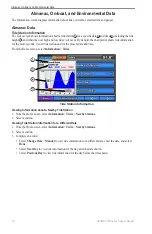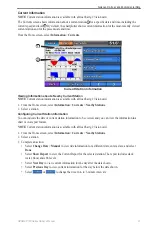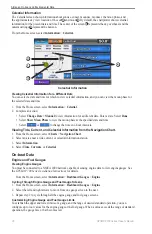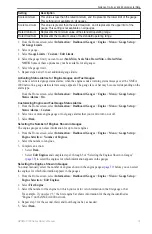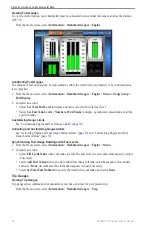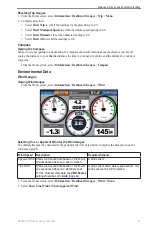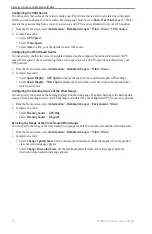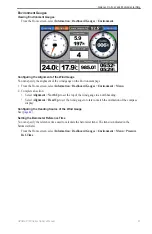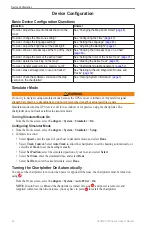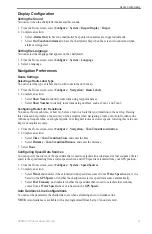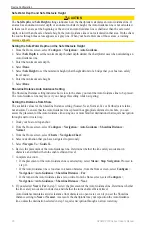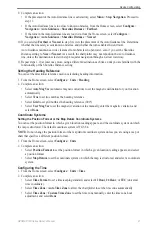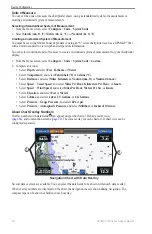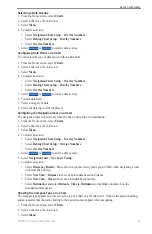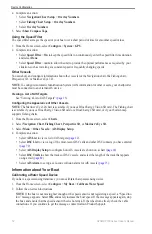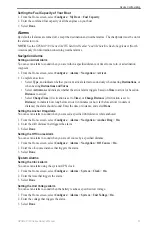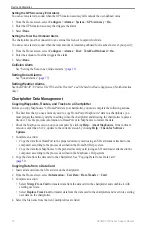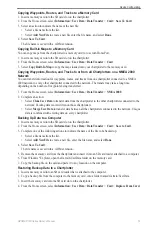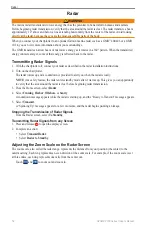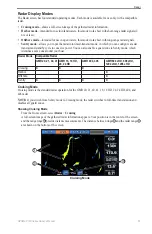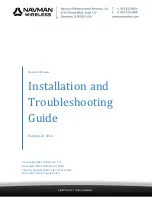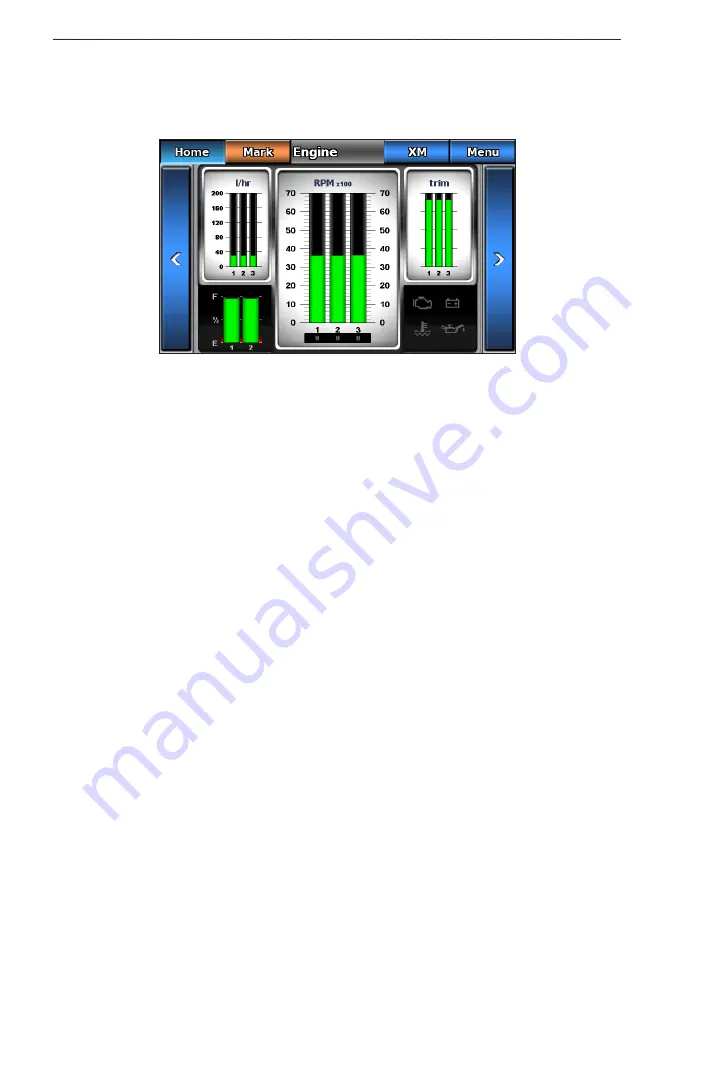
40
GPSMAP 700 Series Owner’s Manual
Almanac, On-boat, and Environmental Data
Viewing Fuel Gauges
To view fuel information, your chartplotter must be connected to an external fuel sensor, such as the Garmin
GFS
™
10.
From the Home screen, select
Information
>
Dashboard Gauges
>
engine
.
Configuring Fuel Gauges
The amount of fuel on board can be represented by either the total fuel level (numeric) or by individual tank
level (graphic).
1. From the Home screen, select
Information
>
Dashboard Gauges
>
engine
>
Menu
>
Gauge Setup
>
Fuel Display
.
2. Complete an action:
• Select
Use Total Fuel Level
to display a numeric value for the total fuel level.
• Select
Use Fuel Tank Levels
>
Number of Fuel Tanks
to display a graphical representation of all the
specified tanks.
Customizing Gauge Limits
See “Customizing Engine and Fuel Gauge Limits” (
).
Activating and Customizing Gauge Alarms
See “Activating Engine and Fuel Gauge Status Alarms” (
) and “Customizing Engine and Fuel
Gauge Status Alarms” (
Synchronizing Fuel Gauge Readings with Fuel Levels
1. From the Home screen, select
Information
>
Dashboard Gauges
>
engine
>
Menu
.
2. Complete an action:
• Select
Fill Up All Tanks
when your tanks are full. The fuel level is reset to maximum capacity. Adjust
if necessary.
• Select
Add Fuel To Boat
when you have added less than a full tank, enter the amount of fuel added,
and select
Done
. An estimate of the fuel added appears. Adjust if necessary.
• Select
Set Total Fuel onboard
to specify the total fuel in your tanks, and select
Done
.
Trip Gauges
Viewing Trip Gauges
Trip gauges show information for odometer, speed, time, and fuel for your present trip.
From the Home screen, select
Information
>
Dashboard Gauges
>
Trip
.

